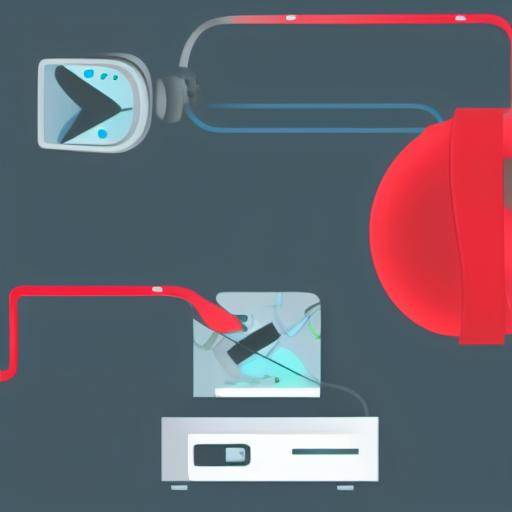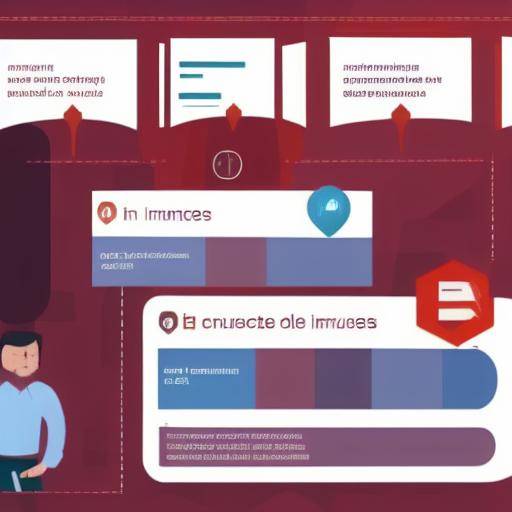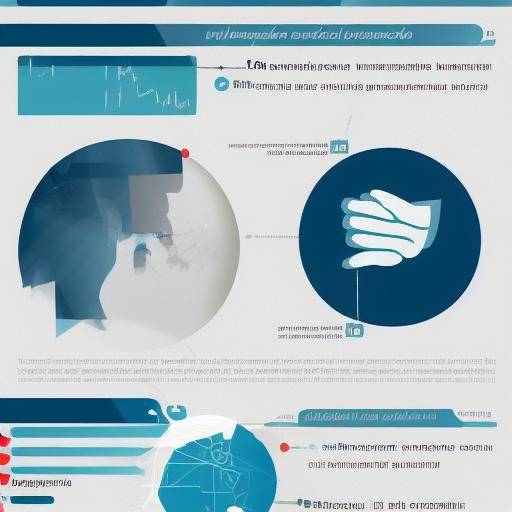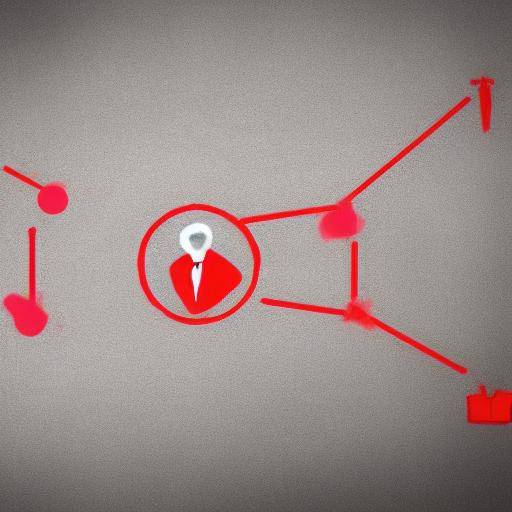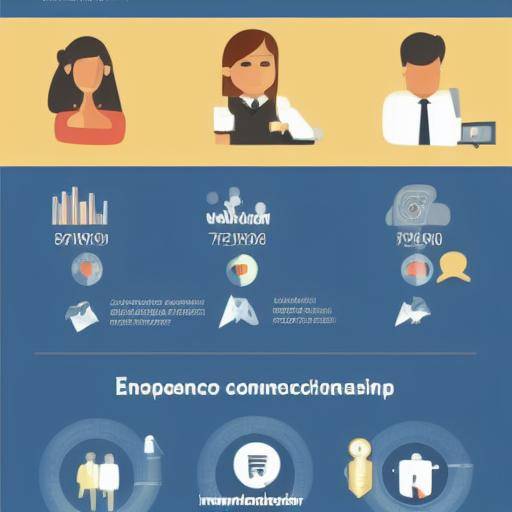
The development of effective communication skills is fundamental in the working and personal environment. Appropriate communication not only facilitates the transmission of ideas and emotions, but also plays a crucial role in the prevention of burnout, a state of physical, emotional and mental exhaustion that may arise from labor stress. In this article, we will explore how the development of communication skills can help prevent burnout, strengthen interpersonal relationships and improve the quality of life in general.
Introduction
Communication is the basis of human interactions and plays a crucial role in all aspects of life. From the workplace to the family environment, the way we communicate influences the quality of our relationships and the level of stress to which we are exposed. In this article, we will explore in detail the importance of developing communication skills, their relationship with burnout prevention, and how these skills can strengthen interpersonal relationships.
History and Background
To understand the importance of developing communication skills and their relationship with burnout, it is essential to explore the background and evolution of both areas. Communication has been a central element in society since time immemorial. From the first forms of oral communication to the development of advanced technologies, human beings have constantly sought to improve their ability to convey information, emotions and thoughts.
Origins and Evolution
The academic study of communication has experienced significant growth over the years. From the pioneering work of theorists like Marshall McLuhan to the advent of social networks and digital communication, the field of communication has experienced constant evolution. These developments have led to a greater understanding of the importance of effective communication in all aspects of life, including the labour sphere.
Significant issues
Throughout history, there have been significant milestones in developing communication skills and understanding burnout. The official recognition of the term "burnout" by the World Health Organization in 2019 marked a turning point in understanding and attention devoted to this problem. At the same time, progress in psychology and business management has shed light on the importance of communication skills in burnout prevention.
Relevant Sport and Discovery
The contributions of experts in psychology, mental health and personal development have contributed significantly to the understanding of burnout and its relation to communication. Discoveries about the effects of chronic stress on physical and mental health have led to greater recognition of the importance of addressing this problem. Similarly, there has been a growing interest in the impact of effective communication on burnout prevention.
Deep analysis
To understand the impact that communication skills can have on burnout prevention, it is crucial to deep explore the current advantages, challenges and trends in this field.
Benefits of Communication Skills
The development of effective communication skills entails numerous benefits both at the personal and professional level. The ability to express thoughts clearly, actively listen to others and resolve conflicts constructively are just a few examples of how communication skills can improve the quality of human interactions.
Challenges and Challenges
Despite the obvious benefits, the development of effective communication skills also faces challenges. In many working environments, lack of clear and open communication can lead to misunderstandings, conflicts and additional stress. Overcoming cultural, linguistic and emotional barriers can represent significant challenges for those seeking to improve their communication skills.
Current trends
In today's world, characterized by globalization and technological progress, current trends in the development of communication skills reflect the need to adapt to a changing environment. Digital communication, teleworking and cultural diversity pose unique challenges and opportunities that require a responsive and responsive approach. Digital communication tools, such as e-mail, videoconferencing and social media, have drastically changed the way we communicate, presenting new challenges for the development of effective communication skills.
Comprehensive review
A complete analysis of practical applications, case studies and best practices in communication skills development is crucial to understanding their relationship with burnout prevention.
Practical Applications
Effective communication skills are applied in a wide range of contexts, including working environments, interpersonal relationships and academia. The ability to express ideas clearly, actively listen to others and adapt to different communication styles are fundamental skills that can prevent emotional exhaustion and improve the quality of labor relations.
Case Studies and Best Practices
Analysis of case studies and best practices in the development of communication skills provides a detailed insight into how these skills can influence burnout prevention. Studies that demonstrate how clear and open communication in the working environment can reduce stress and improve employee performance are clear examples of the importance of these skills.
Opinions of Experts and Future Perspectives
The collection of expert opinions in the field of psychology, business management and communication provides a valuable insight into the impact of communication skills on burnout prevention. The exploration of future prospects in this field sheds light on emerging trends, challenges and opportunities that can influence the development of communication skills in the future.
Comparative analysis
A comparative analysis of communication skills, burnout and interpersonal relationships allows us to identify similarities, differences and possible synergies between these concepts.
Similarities and Variances
The similarities between the development of effective communication skills, the prevention of burnout and the construction of solid interpersonal relationships lie in their emphasis on understanding, empathy and clarity. However, their specific differences and approaches are equally fundamental to understanding their unique impact on human experience.
Examples and Scenarios Detailed
Comparative analysis is reinforced by detailed examples and scenarios that illustrate how communication skills development can affect burnout incidence and strengthen interpersonal relationships. Cases that demonstrate the impact of effective communication on stressful working environments provide a valuable insight into the importance of these skills.
Practical Tips and Accessible Tips
Providing practical advice and specific actions that readers can implement in their daily lives is essential to foster the effective application of communication skills.
- Promote open and honest communication in the working environment.
- Practice active listening to understand the needs and concerns of others.
- Develop stress management and conflict resolution skills to maintain a healthy emotional balance.
- Find opportunities to improve communication skills through courses, books, workshops or training programs.
Industry Perspectives and Expert Reviews
Industry perspectives and expert views in the field of communication and mental health provide a valuable insight into future implications and trends in the development of communication skills.
Interviews and Quotes
Interviews with experts in psychology, business management and communication offer a unique insight into the role of communication skills in burnout prevention. Direct quotes from these experts can illustrate the importance of these skills and provide guidance on how to effectively apply them.
Trend and Prognostic Analysis
The analysis of current trends and future forecasts in the field of communication and mental health shed light on the direction that communication skills can take in the future. Factors such as increasing telework, cultural diversity and demands of the modern working environment influence future trends in the development of communication skills.
Case Studies and Real Life Applications
The inclusion of detailed case studies that illustrate the practical application of communication skills and their impact on burnout prevention improves the relevance and applicability of content for readers.
Results and Lessons Learned
Case studies that outline the concrete results of the implementation of communication skills in specific work environments offer valuable lessons on their real impact on burnout prevention. Understanding how certain communication skills have contributed to reducing stress, improving collaboration and promoting emotional health at work provides tangible evidence of the value of these skills.
Examples of Different Industries and Contexts
The presentation of various examples representing different industries and contexts in which communication skills are applied in the prevention of burnout increases the relevance of content for a wide range of readers. Examples related to medical care, business management, education and other sectors offer a comprehensive view of the usefulness and versatility of these skills.
Future Trends and Predictions
Exploring emerging trends and predicting the future of communication skills development and their relationship with burnout provides readers with an anticipation of what is to come.
Emerging Trends Related to Communication Skills
Emerging trends, such as increased teleworking and the growing importance of digital communication, point to the need for adaptation and continuous development of communication skills. Being aware of these trends allows readers to prepare for future challenges and opportunities in this field.
Current Data and Expert Reviews
Predictions based on current data and expert opinions provide a clear view of what the future stands for for the development of communication skills and their impact on burnout prevention. Considering factors such as technological evolution, changes in the working environment and demands of modern society allows readers to anticipate and prepare for what is to come.
Conclusion
In short, the development of effective communication skills plays a key role in the prevention of burnout and the improvement of interpersonal relationships. From their historical evolution to their influence on everyday life, these skills have the potential to boost positive change in the working and personal environment. In understanding its importance, applying practical advice and anticipating future trends, individuals and organizations can work towards a future in which communication is a powerful tool to promote emotional health and well-being.
Frequently asked questions
Why is it important to develop communication skills to prevent burnout?
Developing effective communication skills can help reduce stress, avoid misunderstandings and foster a healthy working environment, thus contributing to burnout prevention.
To what extent can communication skills influence the quality of interpersonal relationships?
Communication skills significantly impact the quality of interpersonal relationships by facilitating mutual understanding, conflict resolution and establishing solid trust-based and respect-based links.
How can I improve my communication skills in the working environment?
To improve your communication skills in the working environment, it is crucial to practice active listening, be clear and concise when expressing your ideas, seek constructive feedback and be responsive to the opinions of others.
Are there differences in communication skills required for face-to-face and virtual work environments?
Yes, face-to-face and virtual working environments have differences in body language management, voice tone, use of digital communication tools and ability to maintain effective distance collaboration.
What role does communication play in the prevention of burnout in high-stress professions, such as medicine or customer service?
In high-stress professions, effective communication can reduce emotional burden, promote an environment of peer support and help professionals manage and channel stress healthier, thus contributing to burnout prevention.
What are some practical strategies to manage emotional exhaustion derived from burnout?
Some strategies to manage emotional exhaustion include establishing clear limits between work and personal life, practising relaxation and self-care techniques, seeking professional support and fostering open communication on labour concerns.
What role does communication play in promoting a positive and healthy working environment?
Effective communication promotes a positive and healthy working environment by fostering trust, collaboration, resolving constructive conflicts and promoting emotional health among employees.
Conclusion
Effective communication and the development of communication skills are essential aspects in the prevention of burnout and in the construction of sound interpersonal relationships. In understanding the importance of communication, applying practical advice and anticipating future trends, individuals and organizations can work towards a future in which communication is a powerful tool to promote emotional well-being and success at work. With due emphasis on the development of these skills, it is possible to mitigate the impact of labour stress and foster an enabling environment for personal and professional growth.
In short, the development of effective communication skills plays a key role in the prevention of burnout and the improvement of interpersonal relationships. From their historical evolution to their influence on everyday life, these skills have the potential to boost positive change in the working and personal environment. In understanding its importance, applying practical advice and anticipating future trends, individuals and organizations can work towards a future in which communication is a powerful tool to promote emotional health and well-being.
We hope this article has been informative and valuable to you. If you have more questions or need additional information, do not hesitate to contact us. Thanks for your reading!







